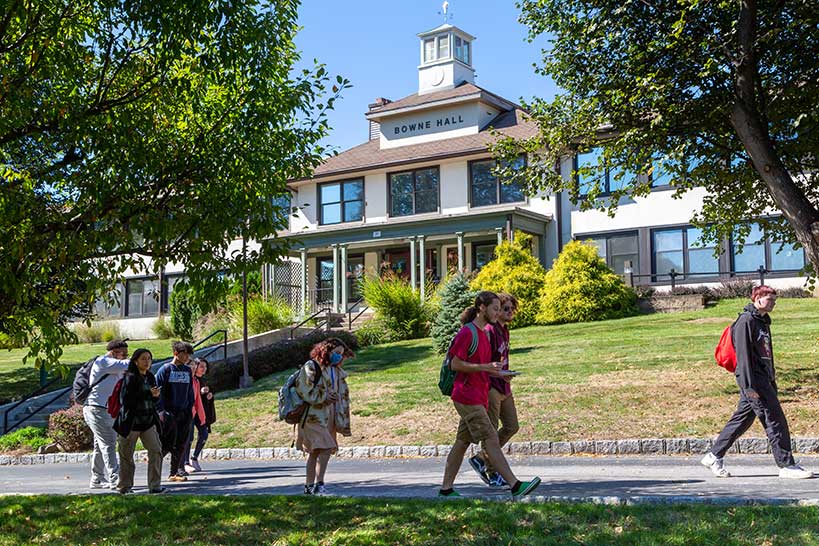Continues to Encourage Students, Faculty, and Staff to Stay Current on Vaccine Boosters
Albany, NY – State University of New York Chancellor John B. King, Jr. today announced that a COVID-19 vaccine will no longer be mandated for students to attend SUNY’s 64 campuses, effective for summer courses, which coincides with the official end of the national public health emergency by President Biden’s administration yesterday.
Moving forward, COVID-19 vaccinations will be strongly encouraged for students, which is consistent with other viruses including influenza and mpox. Faculty and staff will also be encouraged to stay up to date on vaccinations.
“The safety of SUNY’s students is our first and foremost priority, and while COVID is no longer an emergency, we will not lose sight of the impact it continues to have on us,” said SUNY Chancellor King. “Across SUNY we will continue to monitor cases and make adjustments as needed, but even more importantly, we will look to increase the overall health and wellness support we provide our students.”
The decision came at the recommendation of SUNY’s Public Health Expert Advisory Committee, which is comprised of physicians and experts in infectious disease, public health, and neuroscience. The group was convened earlier this year to collect and review data on vaccinations, as well as trends in infection rates from newer variants. SUNY also worked with State health officials in making this decision.
Acting State Health Commissioner Dr. James McDonald said, “While it is reassuring to see the progress we’ve made against the COVID-19 pandemic, precautions are still very important to ensure that progress continues. The Department reminds people that we are fortunate to have easily accessible safe and effective vaccines. High risk individuals such as people 65 and older, as well as younger people with underlying conditions should make sure they are up to date with the vaccine. The Department will continue to consult with SUNY administrators as we monitor the data and align recommendations with those issued by the CDC as we transition out of the Public Health Emergency.”
Co-Chairs of the Public Health Expert Workgroup, Upstate Medical President Mantosh J. Dewan, MD and SUNY Downstate Health Sciences President Wayne J. Riley, MD, said, “Across the nation, we have been pleased to see the rates of infection come down as vaccination levels improved and the new COVID variants became much less severe. SUNY’s updated public health policy for COVID-19 is in line with other city, state, and national action to relax the mandate, and also provides campuses with protocols to keep campuses safe should there be any uptick in cases.”
The vast majority of SUNY students are New Yorkers, and to date approximately 77.5 percent of 18–25-year-olds and 79.8 percent of 26–34-year-olds across the state have completed their primary series vaccination. In addition, rates of infection continue to decline across the country according to the Centers for Disease Control and Prevention.
SUNY will continuously examine COVID-19 data and update its policy as needed based on local conditions or in response to requirements imposed by federal, state, or local authorities. Campuses will also continue to monitor local conditions carefully and make changes as appropriate.
About The State University of New York
The State University of New York is the largest comprehensive system of higher education in the United States, and more than 95 percent of all New Yorkers live within 30 miles of any one of SUNY’s 64 colleges and universities. Across the system, SUNY has four academic health centers, five hospitals, four medical schools, two dental schools, a law school, the state’s only college of optometry, and manages one US Department of Energy National Laboratory. In total, SUNY serves about 1.4 million students amongst its entire portfolio of credit- and non-credit-bearing courses and programs, continuing education, and community outreach programs. SUNY oversees nearly a quarter of academic research in New York. Research expenditures system-wide are nearly $1.1 billion in fiscal year 2022, including significant contributions from students and faculty. There are more than three million SUNY alumni worldwide, and one in three New Yorkers with a college degree is a SUNY alum. To learn more about how SUNY creates opportunities, visit www.suny.edu.
###

